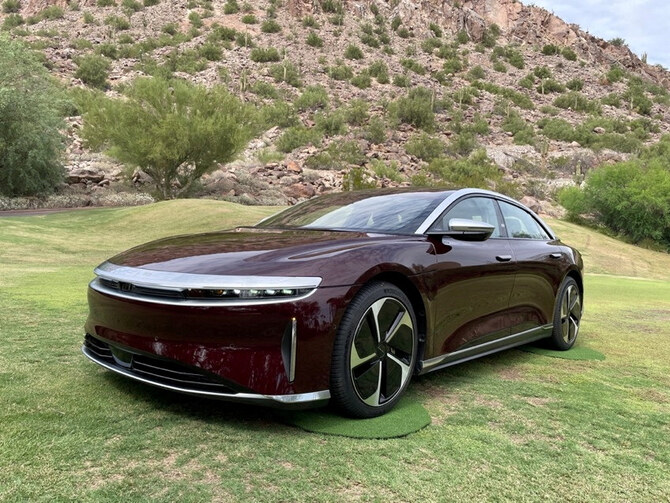RIYADH: US automaker Lucid Group has announced a plan to sell 262.4 million shares of its stock to the public.
This will be done through BofA Securities, a New York-based multinational investment banking division under the auspices of Bank of America, and it will handle the sale.
The shares could be sold in different ways, such as directly to buyers or through market trades on the US Nasdaq exchange, according to a press release.
The company has also given BofA Securities the option to buy up to an additional 39.4 million shares within the next 30 days, the release added.
At the same time, Lucid’s main shareholder, Ayar Third Investment Co.— an affiliate of Saudi Arabia’s Public Investment Fund — plans to buy 374.7 million shares in a separate private deal, at the same price as the public offering.
The move will help Ayar keep its roughly 58.8 percent ownership of Lucid. If BofA Securities decides to buy the extra shares, Ayar is also expected to buy more to maintain its ownership stake.
Ayar’s participation in Lucid’s stock offering aligns with PIF’s broader strategy to strengthen its global investment presence and drive growth in emerging industries. By supporting the firm, the Kingdom’s sovereign wealth fund aims to boost the electric vehicle sector.
Lucid said it will use the money from these sales for general business needs, such as covering expenses or funding new projects. Both deals are still subject to the usual closing conditions before they are finalized.
In August, the electric vehicle maker secured $1.5 billion in new funding from Ayar, which included $750 million in convertible preferred stock through private placement and a $750 million unsecured delayed draw term loan facility, contingent upon certain conditions, according to a statement.
The company plans to utilize funds raised from the private placement and potential loan proceeds for various corporate needs, including investments and working capital.
Lucid beat market expectations for third-quarter deliveries, as discounts and cheaper financing options for its luxury electric vehicles boosted demand in an uncertain economy.
The company delivered 2,781 vehicles in the quarter ending Sept. 30, exceeding estimates of 2,242 from eight analysts surveyed by Visible Alpha.
In the first half of the year, Lucid reported revenues of $200.6 million from deliveries of 2,394 vehicles.
At the end of the second quarter, the carmaker had approximately $4.28 billion in total liquidity and anticipates manufacturing around 9,000 vehicles in 2024.
In September 2023, Lucid opened its first plant outside the US in Saudi Arabia, with an initial capacity of 5,000 EVs annually.

































